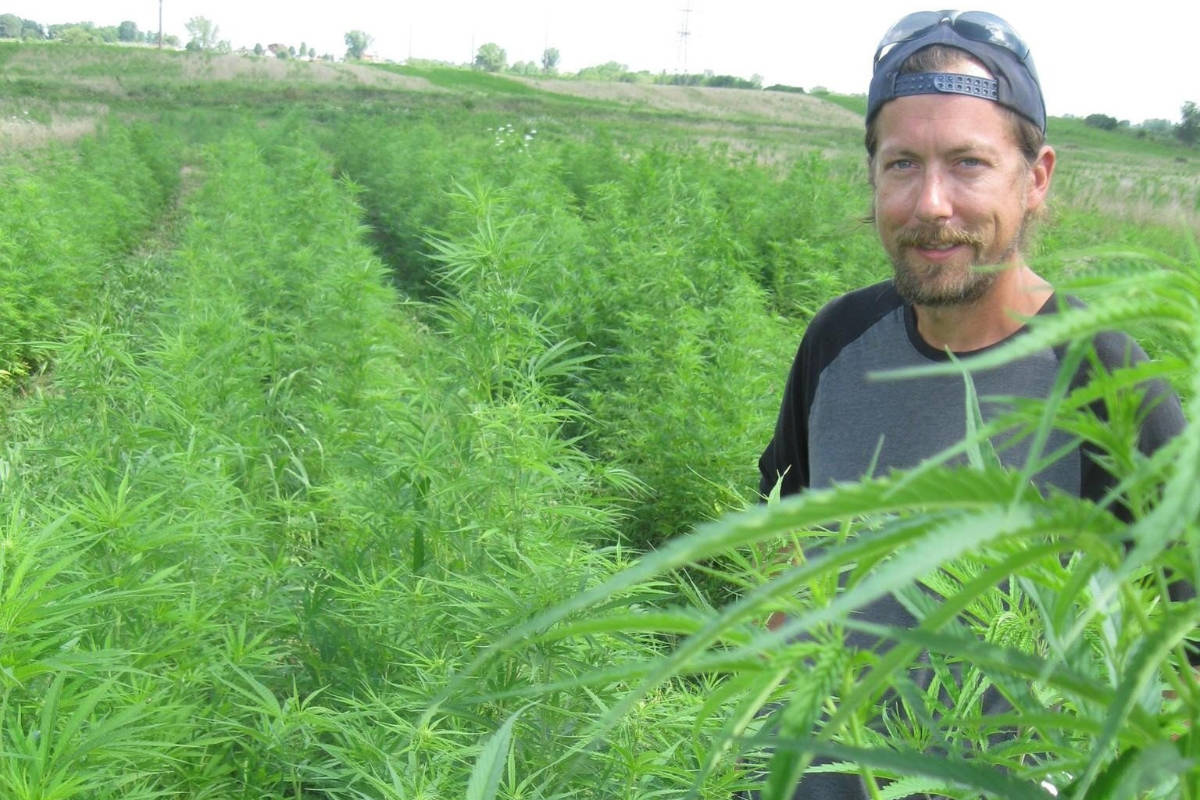The Canadian Hemp Farmers’ Alliance wants to mandate hemp into the Canadian Sustainable Development Strategy by making hemp production a mandatory agenda within Canada.
Dan Carter, CEO of the Canadian Hemp Farmers’ Alliance, says the production of industrial hemp on the nation’s farmlands, would reduce the need for fracking for fossil fuels, mining and tree deforestation, endeavors that lead to mostly one-use products that end up in landfills, oceans and drinking water, jeopardizing the health of all living beings that inhabit our world.
Carter, speaking to a council meeting at Ontario’s Tudor and Cashel Township, said that hemp can tackle 15 of the 17 UN goals for sustainable development. These goals were developed by the UN in consultation with world leaders, international organizations and the general public, and aim to confront the biggest issues affecting the world today. He is looking for local governments to support mandatory hemp production in Canada.
Hemp can also combat CO2 emissions, by taking out 20,000 pounds of CO2 from the air with every 50 pounds per acre of seed planted. In 2018, Canada had 1.5 trillion pounds of CO2 emissions. If 77.5 million acres of hemp were planted in Canada, the nation would be carbon neutral. Currently we are growing 150,000 acres of hemp.
“So right now, we’re looking to bring back hemp as a mandated crop to where we have investment from all levels of government, we have the commitment from all levels of government, to start purchasing hemp-based products. We see hemp being an industry that has been sequestered systematically through choreographed narratives. That we have the opportunity now in the 21st century to change that narrative to where we can actually provide prosperity for everyone and not just a monolithic capitalistic gain for a small group of individuals. I think that we’re moving out of this era and I think we see the hemp is the future that it needs to have more encouragement and more involvement behind it from all levels of government,” he says.
Hemp is likely one of the earliest cultivated crops, with archaeological evidence of its use being found on the Oki Islands near Japan from 8,000 B.C. It is a variety of the Cannabis sativa plant, which is grown specifically for its industrial uses. By the 1940s worldwide production of hemp was around 300,000 tonnes. With competition from artificial fibres, government taxes and corporate propaganda that failed to differentiate hemp from its cannabis cousin, worldwide production plummeted from the 1940s onward, levelling off at 75,000 tonnes by the 1990s.
The cultivation and processing of industrial hemp has been allowed in Canada since 1998 with the Industrial Hemp Regulation Program, which allows persons or companies to do so for commercial purposes after obtaining a licence from the government.
While it may look similar to marijuana, industrial hemp is higher in fibre and lower in concentrations of THC, the psychoactive compound in marijuana that makes it a sought-after drug. The THC levels in industrial hemp are no more than 0.3 per cent while the levels of THC in marijuana run from three per cent to 30 per cent.
A surge in interest in the cultivation of industrial hemp in the 1980s and 1990s, led to Health Canada making industrial hemp production legal near the end of that decade, with the first licence being issued in May of 1998.
The fibre and grain from industrial hemp can be used to make paper, rope, textiles, construction materials, food products, cosmetics, plastics and fuel. It is also a hardy, fast growing, resilient and high yield crop, which can be used in rotation with other more traditional crops. Farmland in many parts of Canada can grow industrial hemp well, and it suppresses most weeds that may try to compete with it and decreases insect and disease issues. It also rebuilds and conditions soil by replacing organic matter and improving aeration through its extensive root system.
In 2019, 211 licences were given out for industrial hemp production in Ontario. In that same year, Ted Haney, the executive director of the Canadian Hemp Trade Alliance called hemp “the most exciting industry in Canada today,” as it has proven to be a growing and profitable enterprise for all those involved in it over the past 20 years.
——-
By Michael Riley, Local Journalism Initiative Reporter, The Bancroft Times, distributed by The Canadian Press

